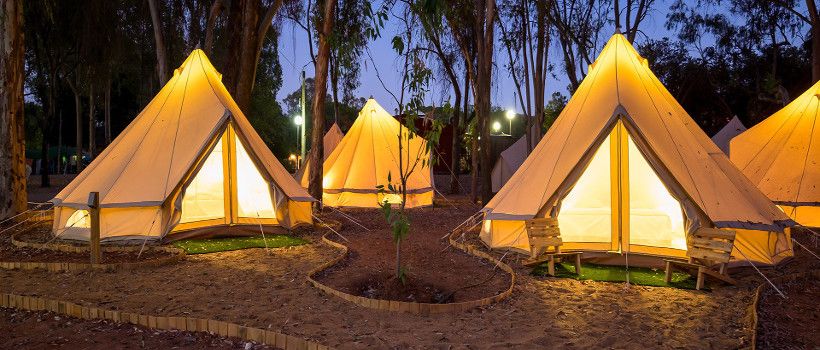The Evolution of Camping: A Thriving Sector
Camping has evolved significantly from its early roots as a necessity for survival to becoming a popular recreational activity enjoyed by millions worldwide. In this blog, we explore the evolution of camping as a booming sector, highlighting trends, innovations, and its enduring appeal to outdoor enthusiasts.
Early Origins and Necessity
Camping traces its origins back to ancient times when early humans sought shelter and safety in natural environments. Over millennia, camping evolved from a means of survival to a recreational pursuit embraced for its connection to nature and sense of adventure.
Modern Trends and Innovations
1. Glamping: Luxury Camping
- Definition: Glamping blends glamour with camping, offering luxurious accommodations in scenic outdoor settings.
- Appeal: It appeals to travelers seeking comfort without sacrificing the outdoor experience, featuring amenities like comfortable beds, gourmet meals, and even spa services.
2. Technology Integration
- Smart Camping Gear: Advances in technology have led to the development of high-tech camping gear such as solar-powered gadgets, lightweight materials, and portable water filtration systems.
- Digital Connectivity: Many campsites now offer Wi-Fi and mobile charging stations, catering to tech-savvy campers while maintaining a connection to the digital world.
3. Sustainable Practices
- Leave No Trace: Campers increasingly prioritize sustainable practices to minimize their environmental footprint. This includes proper waste disposal, conservation of natural resources, and respecting wildlife habitats.
- Eco-Friendly Campsites: Some campgrounds are adopting eco-friendly initiatives like using solar energy, recycling programs, and promoting responsible tourism.
Booming Popularity and Economic Impact
4. Rise in Outdoor Recreation
- Health and Wellness: Camping promotes physical activity, stress reduction, and mental well-being, contributing to its growing popularity as a recreational activity.
- Family Bonding: Families seek camping as an opportunity to bond, unplug from technology, and create lasting memories in natural settings.
5. Economic Growth
- Tourism Revenue: The camping sector generates significant revenue through campground fees, equipment sales, and related services such as guided tours and outdoor activities.
- Job Creation: The growth of camping has led to employment opportunities in hospitality, outdoor retail, eco-tourism, and adventure guiding.
Future Prospects and Challenges
6. Innovation and Adaptation
- Continuous Innovation: Continued innovation in camping gear, eco-friendly practices, and digital integration will shape the future of the sector.
- Adapting to Change: Addressing challenges such as climate change, overcrowding at popular sites, and balancing conservation with recreation will be crucial for sustainable growth.
Embracing the Camping Experience
Camping remains a beloved pastime that allows individuals and families to reconnect with nature, unwind from urban life, and forge deeper connections with loved ones. Whether you prefer traditional tent camping, luxurious glamping, or exploring off-the-grid adventures, camping offers something for everyone to enjoy.
Conclusion
The evolution of camping reflects a dynamic blend of tradition and innovation, catering to diverse interests and preferences in outdoor recreation. As the sector continues to thrive, embracing sustainability, technological advancements, and the timeless allure of nature will ensure that camping remains a cherished activity for generations to come.


